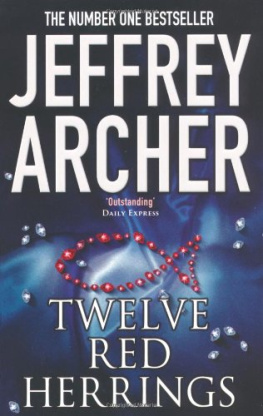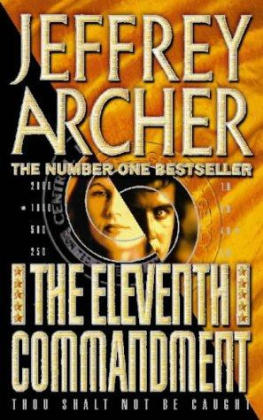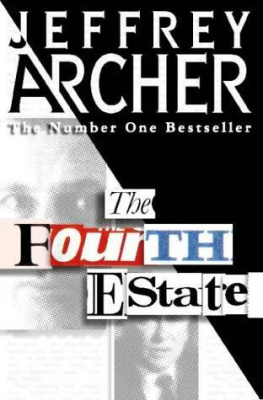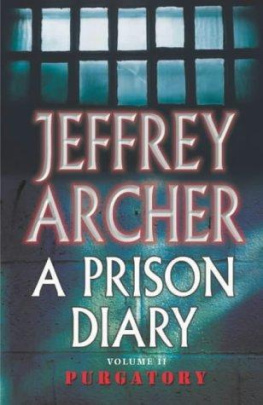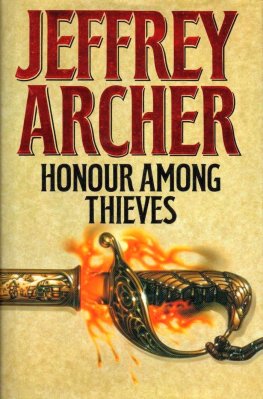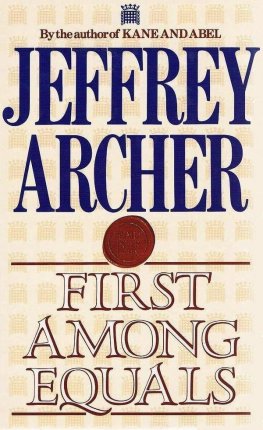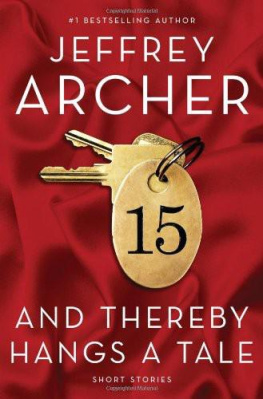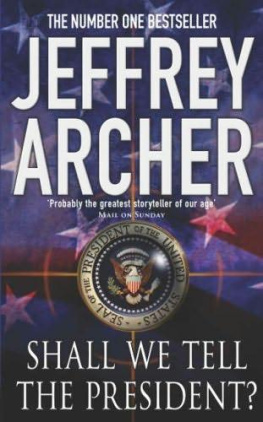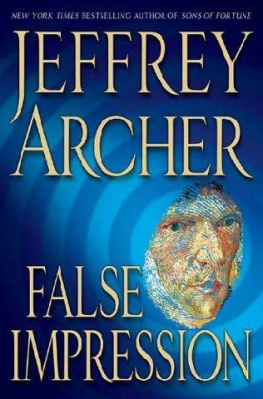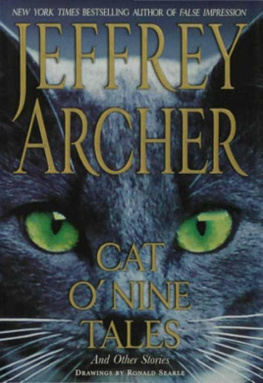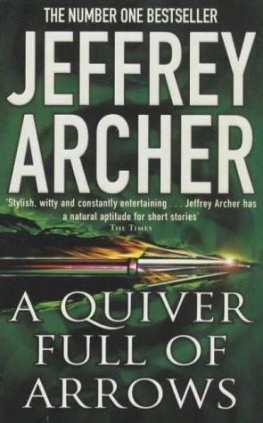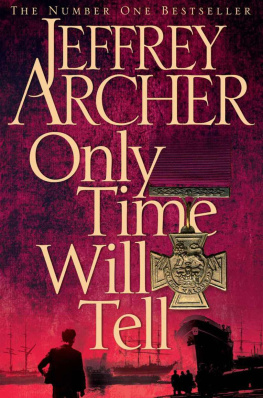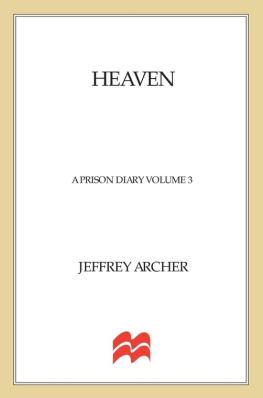Jeffrey Archer - Twelve Red Herrings
Here you can read online Jeffrey Archer - Twelve Red Herrings full text of the book (entire story) in english for free. Download pdf and epub, get meaning, cover and reviews about this ebook. year: 2010, publisher: Pan Books, genre: Detective and thriller. Description of the work, (preface) as well as reviews are available. Best literature library LitArk.com created for fans of good reading and offers a wide selection of genres:
Romance novel
Science fiction
Adventure
Detective
Science
History
Home and family
Prose
Art
Politics
Computer
Non-fiction
Religion
Business
Children
Humor
Choose a favorite category and find really read worthwhile books. Enjoy immersion in the world of imagination, feel the emotions of the characters or learn something new for yourself, make an fascinating discovery.
- Book:Twelve Red Herrings
- Author:
- Publisher:Pan Books
- Genre:
- Year:2010
- Rating:4 / 5
- Favourites:Add to favourites
- Your mark:
- 80
- 1
- 2
- 3
- 4
- 5
Twelve Red Herrings: summary, description and annotation
We offer to read an annotation, description, summary or preface (depends on what the author of the book "Twelve Red Herrings" wrote himself). If you haven't found the necessary information about the book — write in the comments, we will try to find it.
Twelve Red Herrings — read online for free the complete book (whole text) full work
Below is the text of the book, divided by pages. System saving the place of the last page read, allows you to conveniently read the book "Twelve Red Herrings" online for free, without having to search again every time where you left off. Put a bookmark, and you can go to the page where you finished reading at any time.
Font size:
Interval:
Bookmark:
HERRINGS
PAN BOOKS
To Chris, Carol and Alyson

I TS HARD TO KNOW EXACTLY WHERE TO begin. But first, let me explain why Im in jail.
The trial had lasted for eighteen days, and from the moment the judge had entered the courtroom the public benches had been filled to overflowing. The jury at Leeds Crown Court had been out for almost two days, and rumour had it that they were hopelessly divided. On the barristers bench there was talk of hung juries and retrials, as it had been more than eight hours since Mr Justice Cartwright had told the foreman of the jury that their verdict need no longer be unanimous: a majority of ten to two would be acceptable.
Suddenly there was a buzz in the corridors, and the members of the jury filed quietly into their places. Press and public alike began to stampede back into court. All eyes were on the foreman of the jury, a fat, jolly-looking little man dressed in a double-breasted suit, striped shirt and a colourful bow tie, striving to appear solemn. He seemed the sort of fellow with whom, in normal circumstances, I would have enjoyed a pint at the local. But these were not normal circumstances.
As I climbed back up the steps into the dock, my eyes settled on a pretty blonde who had been seated in the gallery every day of the trial. I wondered if she attended all the sensational murder trials, or if she was just fascinated by this one. She showed absolutely no interest in me, and like everyone else was concentrating her full attention on the foreman of the jury.
The clerk of the court, dressed in a wig and a long black gown, rose and read out from a card the words I suspect he knew by heart.
Will the foreman of the jury please stand.
The jolly little fat man rose slowly from his place.
Please answer my next question yes or no. Members of the jury, have you reached a verdict on which at least ten of you are agreed?
Yes, we have.
Members of the jury, do you find the prisoner at the bar guilty or not guilty as charged?
There was total silence in the courtroom.
My eyes were fixed on the foreman with the colourful bow tie. He cleared his throat and said,
I first met Jeremy Alexander in 1978, at a CBI training seminar in Bristol. Fifty-six British companies who were looking for ways to expand into Europe had come together for a briefing on Community Law. At the time that I signed up for the seminar Coopers, the company of which I was chairman, ran 127 vehicles of varying weights and sizes, and was fast becoming one of the largest private road haulage companies in Britain.
My father had founded the firm in 1931, starting out with three vehicles - two of them pulled by horses - and an overdraft limit of ten pounds at his local Martins bank. By the time we became Cooper & Son in 1967 the company had seventeen vehicles with four wheels or more, and delivered goods all over the north of England. But the old man still resolutely refused to exceed his ten-pound overdraft limit.
I once expressed the view, during a downturn in the market, that we should be looking further afield in search of new business - perhaps even as far as the Continent. But my father wouldnt hear of it. Not a risk worth taking, he declared. He distrusted anyone born south of the Humber, let alone those who lived on the other side of the Channel. If God put a strip of water between us, he must have had good reasons for doing so, were his final words on the subject. I would have laughed, if I hadnt realised he meant it.
When he retired in 1977 - reluctantly, at the age of seventy - I took over as chairman, and began to set in motion some ideas Id been working on for the past decade, though I knew my father didnt approve of them. Europe was only the beginning of my plans for the companys expansion: within five years I wanted to go public. By then, I realised, we would require an overdraft facility of at least a million pounds, and would therefore have to move our account to a bank which recognised that the world stretched beyond the county boundaries of Yorkshire.
It was around this time that I heard about the CBI seminar at Bristol, and applied for a place.
The seminar began on the Friday, with an opening address from the Head of the European Directorate of the CBI. After that the delegates split into eight small working groups, each chaired by an expert on Community Law. My group was headed by Jeremy Alexander. I admired him from the moment he started speaking - in fact, it wouldnt be an exaggeration to say that I was overawed. He was totally self-assured, and as I was to learn, he could effortlessly present a convincing argument on any subject, from the superiority of the Code Napoleon to the inferiority of the English middle-order batting.
He lectured us for an hour on the fundamental differences in practice and procedure between the member states of the Community, then answered all our questions on Commercial and Company Law, even finding time to explain the significance of the Uruguay Round. Like me, the other members of our group never stopped taking notes.
We broke up for lunch a few minutes before one, and I managed to grab a place next to Jeremy. I was already beginning to think that he might be the ideal person to advise me on how to go about achieving my European ambitions.
Listening to him talk about his career over a meal of stargazy pie with red peppers, I kept thinking that, although we were about the same age, we couldnt have come from more different backgrounds. Jeremys father, a banker by profession, had escaped from Eastern Europe only days before the outbreak of the Second World War. He had settled in England, anglicised his name, and sent his son to Westminster. From there Jeremy had gone on to Kings College, London, where he read Law, graduating with first-class honours.
My own father was a self-made man from the Yorkshire Dales who had insisted I leave school the moment I passed my O levels. Ill teach you more about the real world in a month than youd learn from any of those university types in a lifetime, he used to say. I accepted this philosophy without question, and left school a few weeks after my sixteenth birthday. The next morning I joined Coopers as an apprentice, and spent my first three years at the depot under the watchful eye of Buster Jackson, the works manager, who taught me how to take the companys vehicles apart and, more importantly, how to put them back together again.
After graduating from the workshop, I spent two years in the invoicing department, learning how to calculate charges and collect bad debts. A few weeks after my twenty-first birthday I passed the test for my heavy goods vehicles licence, and for the next three years I zig-zagged across the north of England, delivering everything from poultry to pineapples to our far-flung customers. Jeremy spent the same period reading for a masters degree in Napoleonic Law at the Sorbonne.
When Buster Jackson retired I was moved back to the depot in Leeds to take over as works manager. Jeremy was in Hamburg, writing a doctoral thesis on international trade barriers. By the time he had finally left the world of academia and taken up his first real job, as a partner with a large firm of commercial solicitors in the City, I had been earning a working wage for eight years.
Although I was impressed by Jeremy at the seminar, I sensed, behind that surface affability, a powerful combination of ambition and intellectual snobbery that my father would have mistrusted. I felt hed only agreed to give the lecture on the off-chance that, at some time in the future, we might be responsible for spreading some butter on his bread. I now realise that, even at our first meeting, he suspected that in my case it might be honey.
Font size:
Interval:
Bookmark:
Similar books «Twelve Red Herrings»
Look at similar books to Twelve Red Herrings. We have selected literature similar in name and meaning in the hope of providing readers with more options to find new, interesting, not yet read works.
Discussion, reviews of the book Twelve Red Herrings and just readers' own opinions. Leave your comments, write what you think about the work, its meaning or the main characters. Specify what exactly you liked and what you didn't like, and why you think so.

